|
|
|
Editor's note
|
|
Sand, a key ingredient in concrete, has helped fuel construction booms and land reclamation around the world. But careless and sometimes illicit sand extraction has destabilised bridges and roads, wrecked ecosystems and stolen riverbanks and coastlines. It has led to water shortages and salt-water intrusion into farmer fields, killing crops. Those who work in the sand-mining industry often find themselves in precarious, exploitive and dangerous jobs. Melissa Marschke from the University of Ottawa and her colleagues write about the crisis fuelled by urbanisation and our seemingly boundless appetite for sand.
If you’re confused about whether or not to wear a face mask to stop the spread of coronavirus, you’re not alone. While countries such as France are mandating their use in certain circumstances, the UK and the WHO are sticking by their guidance that masks are not necessary for healthy members of the public. This leaves many of us wondering who’s got it right. The truth is, there isn’t sufficient evidence either way to guide governments on mask policy, which leaves them relying on one of two public health principles to decide what to recommend, explains Claire Horwell and Fiona McDonald.
|
Hannah Hoag
Deputy Editor | Environment + Energy Editor
|

|
|
Top Stories
|
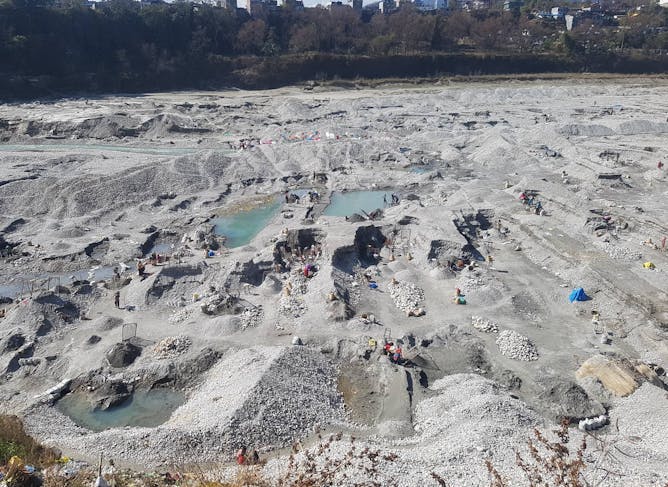
A sand mine in Nepal. Growing urbanization and its need for concrete is fuelling a global sand crisis.
(Michael Hoffmann)
Melissa Marschke, L’Université d’Ottawa/University of Ottawa; Jean-François Rousseau, L’Université d’Ottawa/University of Ottawa; Laura Schoenberger, L’Université d’Ottawa/University of Ottawa; Michael Hoffmann, Martin Luther University Halle-Wittenberg
As sand markets boom, entrepreneurs, organized crime and others are cashing in — leaving widespread environmental damage in their wake.
|
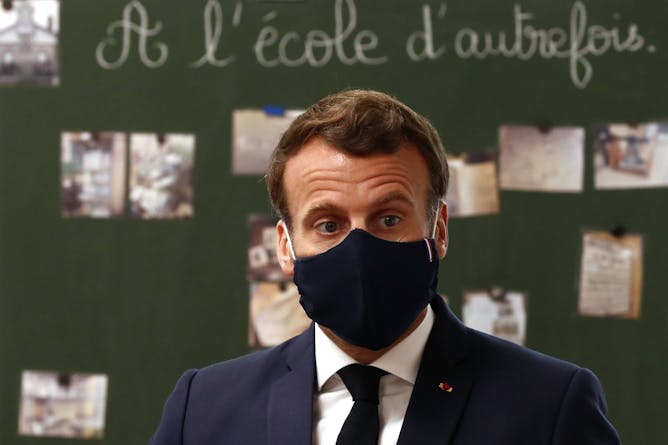
The man in the ironed mask: French president Emmanuel Macron changed his policy on mask-wearing in April.
Ian Langsdon/EPA
Claire J. Horwell, Durham University; Fiona McDonald, Queensland University of Technology
There are two principles governments use to make public health decisions, and on mask-wearing they're in direct conflict.
|
COVID-19
|
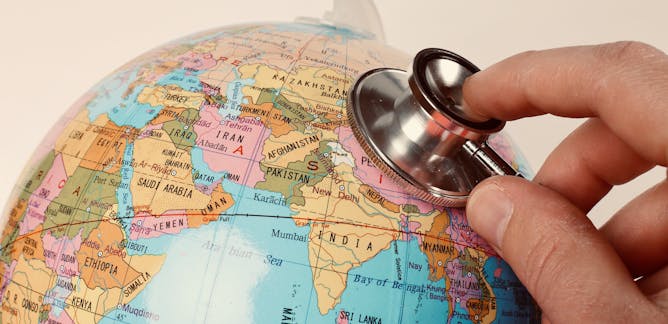
Sunil Venaik, The University of Queensland
The response of individual nations to coronavirus has largely been ad hoc, piecemeal and in many cases, lethally ineffective - just like climate action.
| |
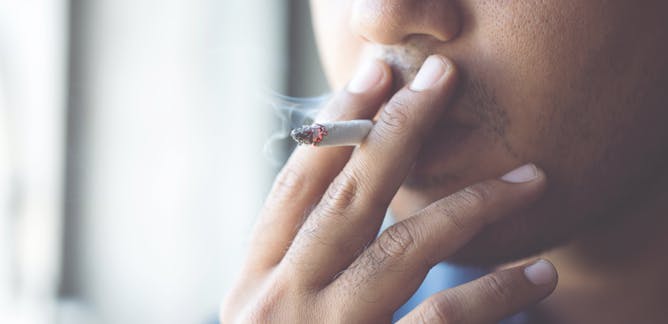
Adrian Bauman, University of Sydney; Leah Shepherd, University of Sydney; Melody Ding, University of Sydney
A study from France concluded smoking might protect against coronavirus. But particularly now, in the midst of a pandemic, it's critical we don't take headlines at face value.
|
|
|
Politics + Society
|
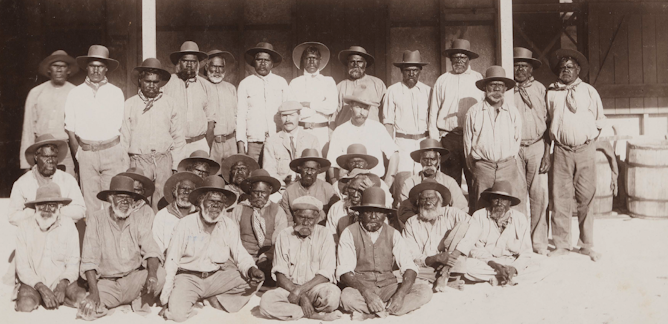
Aileen Marwung Walsh, Deakin University; Laura Rademaker, Australian National University
Aboriginal communities have a long history of fighting off disease outbreaks – and self-determination is vital to their success.
| |
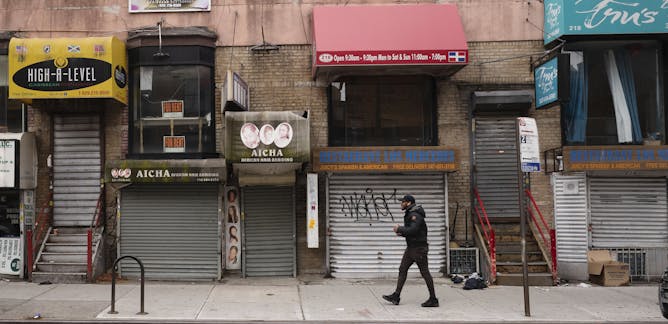
William M. Rodgers III, Rutgers University
Black Americans were left especially vulnerable to the economic impact of COVID-19 and history shows it will take them longer to rebound.
|
|
|
En español
|
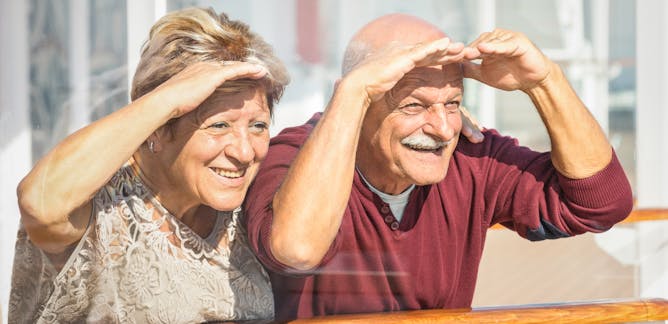
Elisa Pozo Menéndez, Universidad Politécnica de Madrid (UPM); Ester Higueras, Universidad Politécnica de Madrid (UPM)
La pandemia de COVID-19 pone de manifiesto la necesidad de transformar el modelo residencial bajo un nuevo enfoque que ofrezca diferentes alternativas a las personas mayores.
| |

África Yebra Rodríguez, Universidad de Jaén; Alfonso Alejo Armijo, Universidad de Jaén; Carlos Martínez Bazán, Universidad de Jaén; Raquel Caballero Águila, Universidad de Jaén
La pandemia de COVID-19 nos ha mostrado varios ejemplos de cooperación entre distintas disciplinas científicas para mejorar nuestra salud.
|
|
|
En Français
|
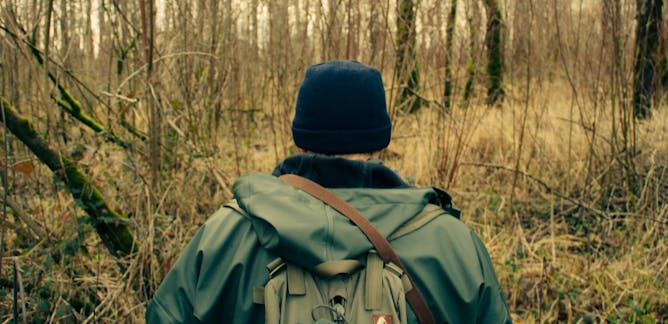
Maria Mercanti-Guérin, IAE Paris – Sorbonne Business School
Réseaux sociaux et influenceurs, « storytelling », salons dédiés… l’essor du mouvement repose sur certaines pratiques loin d’apparaître comme hors système.
| |
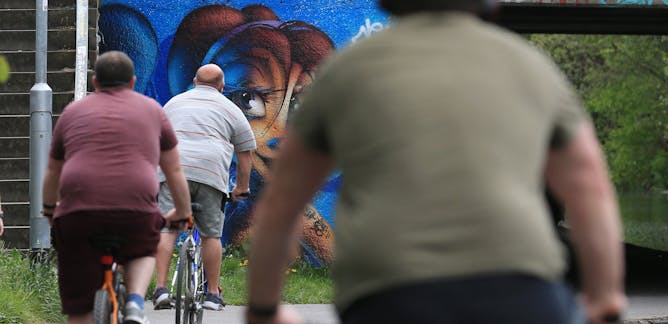
Frédéric Altare, Inserm
La majorité des patients admis en réanimation suite à une infection par le SARS-CoV-2 présentent un surpoids important. Pourquoi les personnes obèses sont-elles plus menacées par ce coronavirus ?
|
|
|
| |
| |
| |
| |
| |
| |
|
|
|
|
|
|
|